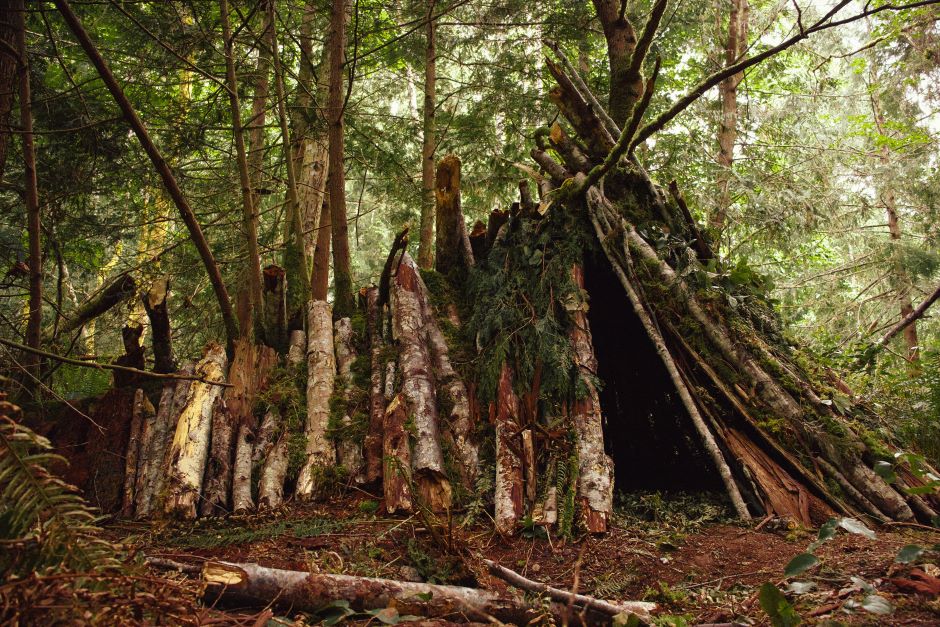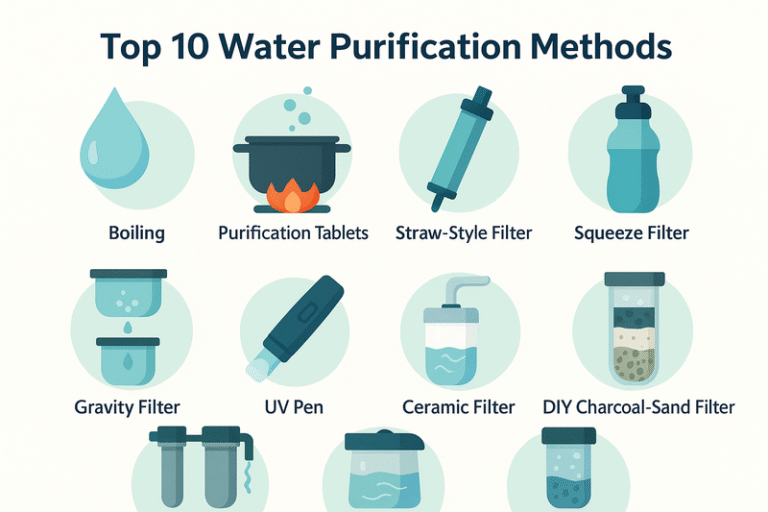Survival Camping, Anyone?
Survival camping isn’t about comfort — it’s about capability. This field-test mindset is a key lesson from 100 Forgotten Survival Skills That Could Save Your Life.
This post contains affiliate links. I may earn a small commission at no extra cost to you. Learn more.
If you spend any time outdoors, you’ve probably heard the term “survival camping.” It’s more than just pitching a tent — it’s about stripping camping down to its raw essentials. As more people feel burned out by modern life, survival camping has exploded in popularity as a way to reset, reconnect, and test real-world self-reliance.
Survival camping, also known as minimalist camping, means relying on skill instead of gear. You collect your own food, build your own shelter, and live with only the tools you can carry. It’s a challenge that separates the weekend campers from the true outdoorsmen — a hands-on test of creativity, endurance, and bushcraft.
While traditional camping offers comfort — running water, cozy tents, and pre-packed meals — survival camping removes the safety net. There’s no heater to fall back on, no convenience to hide behind. It’s just you, your mindset, and the wilderness.
Learning the core survival skills — fire-starting, navigation, shelter-building, and water collection — transforms the experience from intimidating to empowering. Once you’ve mastered the basics, survival camping delivers something a campground never will: the confidence of knowing you can survive anywhere.
💪 Benefits of Survival Camping
Modern life can grind you down — screens, schedules, and constant noise. Survival camping offers the antidote: a chance to reconnect with nature and remind yourself what real independence feels like. Whether you take a short weekend trip or head deep into the wilderness, the goal is the same — leave the noise behind, live simply, and depend solely on what nature provides.
🧠 Mind Over Matter
Survival camping doesn’t just test your outdoor skills — it reshapes your mindset. Spending days or even weeks with minimal gear forces you to rely on problem-solving, instinct, and grit. You start to realize that most obstacles aren’t physical; they’re mental.
When you’ve built shelter from nothing, made fire in the rain, and fed yourself with what the wild provides, you develop an unshakable sense of confidence. The stress and chaos of everyday life start to look small compared to what you’ve already conquered. You stop doubting yourself — because you’ve proven you can survive with your own two hands.
🏋️♂️ Becoming Your Ultimate Self
The rewards aren’t just mental — they’re physical, too. Survival camping demands endurance, strength, and adaptability. It’s a full-body workout that challenges every muscle, every reflex, and every ounce of your determination.
Much like running your first marathon, your first survival trip transforms how you see limits. Each fire lit, shelter built, and mile hiked hardens your resilience and sharpens your focus. It’s not just camping — it’s a holistic test of body and mind that leaves you stronger, leaner, and more self-aware.
For many, that’s the true payoff: rediscovering your primal capability and realizing that comfort was never strength — challenge was.
Creating a Survival Kit:
Any outdoor lover should carry a basic survival kit. You never know when something might go wrong and jeopardize your life. However, if you carry properly thought-out survival equipment with you, you will substantially increase your odds of survival. However, it is important to note that different persons may need different types of things in their survival kit and that you will need to adapt yours to your own needs and circumstances. In consequence, you should certainly avoid buying a pre-assembled kit and construct your own instead. We’ll go through some of the most important items in a survival pack and take into account certain factors while putting it together.
🎒 What Kind of Supplies Can You Bring When Survival Camping?
There’s no single rulebook for survival camping — it’s about how far you’re willing to push your comfort zone. You won’t be dragging an RV or a cooler full of steaks into the woods, but you don’t have to go in empty-handed either. The key is balance: bringing just enough to stay alive while relying primarily on skill and resourcefulness.
Your level of experience should determine how light you pack. If you’re new to survival camping, bring a few extra basics for safety. As you gain confidence and skill, you can scale down and depend more on your environment.
Here are a few core essentials every survival camper should carry:
✅ Sleeping Bag or Bivvy: Keeps body heat in and exposure out — critical in cold or wet conditions.
✅ Basic Shelter Material: A tarp, emergency blanket, or lightweight tent to protect you from the elements.
✅ Knife or Multi-Tool: Your lifeline for cutting, carving, food prep, and repairs.
✅ First-Aid & Survival Kit: Include bandages, antiseptic, fire starter, and navigation aids.
✅ Cooking Pot & Utensils: Boil water, cook food, and sterilize tools — small, multi-use cookware goes a long way.
💡 Pro Tip: Always test your gear before heading out. Knowing how to pitch your tarp, light your fire starter, or use your knife efficiently can make the difference between a rough night and a rescue mission.
🧘♂️ Why Camping Is Good for Your Mental Wellbeing
Stepping away from screens, deadlines, and constant noise does more than clear your head — it rewires your brain. Camping brings you back into close contact with the natural world, where the pace is slower, the air cleaner, and the noise limited to wind and wildlife.
Modern science backs it up: time spent in forests, near water, or surrounded by wildlife reduces stress hormones, improves focus, and restores emotional balance. These environments act like a natural antidepressant — lowering anxiety while sharpening awareness and creativity.
Our modern disconnection from nature has come at a cost. Too much time indoors and too little exposure to the natural world dulls resilience and feeds anxiety. Reconnecting through camping — especially survival camping — rebuilds that lost layer of mental protection. It resets your instincts and reminds you that peace doesn’t come from convenience; it comes from capability.
Each trip into the wild is a classroom for forgotten knowledge. Continue your training with the complete guide: 100 Forgotten Survival Skills That Could Save Your Life.
🔚 Final Thoughts: Survival Camping Reconnects You to What Matters
Survival camping isn’t about hardship for hardship’s sake — it’s about stripping away the noise until only the essentials remain. Fire, food, shelter, and mindset. When you learn to handle those with confidence, stress and fear lose their power over you.
Each time you step into the wild with less gear and more skill, you become more adaptable, more grounded, and more aware of what truly matters. You start to understand that comfort is temporary, but capability lasts forever.
So, pack light, think smart, and head into the wild not to escape the world — but to remember how to live in it.







